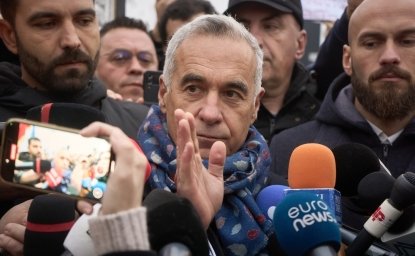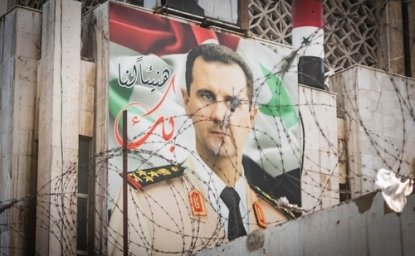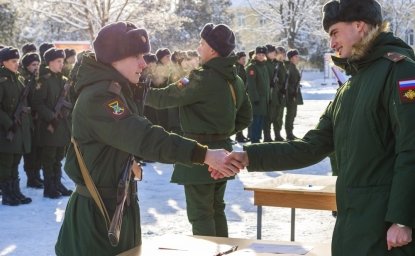
A blog of the Kennan Institute
BY EDWARD LEMON
Kazakhstan’s long-awaited political transition has begun in earnest. Having ruled for almost thirty years, 78-year-old President Nursultan Nazarbayev announced his retirement live on television on March 19th. Nazarbayev stated that the decision was "not easy,” but that he wanted to help with the transition to "a new generation of leaders.”
Having been appointed First Secretary of the Communist Party by Gorbachev in the then-Soviet Republic of Kazakhstan in 1989, Nazarbayev is the only leader independent Kazakhstan has known. Fifty-two percent of Kazakhstan’s population was born during his rule. He has built an outward-looking “soft” authoritarian regime, attracting investment, generating growth, and building a futuristic new capital city in Astana.
Rumors that he was looking toward transition have circulated for years, most recently in February when he asked the Constitutional Council for clarification on the end of presidential terms. There are a number of possible motivations for the move. At 78, Nazarbayev appears to be in good health. But he has had scares in the past. In 2011, he travelled to Germany to have prostate surgery. He has recently seen leaders of two of his Central Asian neighbors, Islam Karimov of Uzbekistan and Saparmurat Niyazov of Turkmenistan, die in office. Nazarbayev will be keen to ensure that all aspects of the transition are settled while he is still in relatively good health.
Kazakhstan has faced a growing number of challenges in recent years. Much of Nazarbayev’s legitimacy was performance-based, tied to rising living standards, stability, and economic growth. But, as commodity prices have fallen and as the Russian economy sunk into recession, economic growth has slowed from its peak at over 12 percent in 2000 to a projected 3.5 percent this year. Inequality has risen, creating discontent between the small minority who have benefited the most from economic growth and the majority who have not. Corruption remains endemic with Kazakhstan languishing in 124th place in the latest Corruption Perceptions Index.
Once the bastion of stability in the region, Kazakhstan has experienced the largest number of terrorist attacks in the region in recent years and has violently suppressed labor unrest in 2011 and protests over land reforms in 2016. Most recently, this creeping mood of frustration has bubbled up when a blaze in a poorer district of Astana resulted in the deaths of five children. In response, Nazarbayev fired the entire government for not improving conditions in the country. Nazarbayev has watched as two successive governments in neighboring Kyrgyzstan were overthrown by popular revolutions.
Given all of these challenges, Nazarbayev will be keen to ensure that the transition to power is smooth and that the new leader continues his policies of “authoritarian modernization,” by which political control remains centralized and criticism is not tolerated, but the country is open to investment and gradual marketization.
So, what happens next? Following the constitution, Nazarbayev has named close ally Kassym-Jomart Tokayev, the current chairman of the Senate, as acting president before elections are held. But don’t be fooled. Nazarbayev is not exiting power completely. Constitutional amendments introduced in 2010 made him “Leader of the Nation.” This protects him, his family, and their property from civic or criminal prosecution.
Later changes made Nazarbayev lifelong chairman of the National Security Council and leader of the ruling Nur Otan party. After becoming acting president, Tokayev immediately proposed renaming the capital city Nursultan in the first president’s honor. These positions give Nazarbayev immense influence and would allow him to oversee the transition in the way Lee Kuan Yew did in Singapore.
Who will succeed the first president? A number of possible contenders appear to be in the running. Tokayev, a career diplomat and former prime minister could consolidate his position as acting president and make the position permanent. Other potential successors include former prime minister and current security chief Karim Massimov, who has been responsible for preparing the elite for transition, or the current Kazakh ambassador to the Russian Federation and a former prime minister Imangali Tasmagambetov.
Nazarbayev might also keep the regime in the family, and one that has enriched itself through Kazakhstan’s state-dominated economy. Nazarbayev’s daughter Dariga Nazarbayeva, who was named chairwoman of the Senate following her father’s retirement, his nephew Kairat Satybaldy, who is a high-ranking member of the country’s security services, or his son-in-law Timur Kulibayev, an oligarch and economist married to Nazarbayev’s second daughter Dinara, could be named successor.
Importantly, Nazarbayev phoned Putin to tell him of his decision before he announced it publicly. We can therefore expect Russia to play an indirect role in approving the successor. And perhaps Kazakhstan will serve as a model for Putin to step down as head of state while retaining control over the state.
One thing remains clear: Nazarbayev may have resigned, but he is still the most important person in the country by a country mile. He is going to play a central role in dictating who succeeds him as president of the country.
Author

President, Oxus Society for Central Asian Affairs; Research Assistant Professor, The Bush School of Government and Public Service, Texas A&M University (Washington, D.C. Teaching Site)

Kennan Institute
The Kennan Institute is the premier US center for advanced research on Eurasia and the oldest and largest regional program at the Woodrow Wilson International Center for Scholars. The Kennan Institute is committed to improving American understanding of Russia, Ukraine, Central Asia, the South Caucasus, and the surrounding region though research and exchange. Read more

Explore More in The Russia File
Browse The Russia File
In Search of Russia’s Digital Trace in Romania’s Political Crisis

With Syria’s Collapse Russia’s Regional Power Play Disintegrates

Putin's Strategy Tests Europe's Defense Limits

